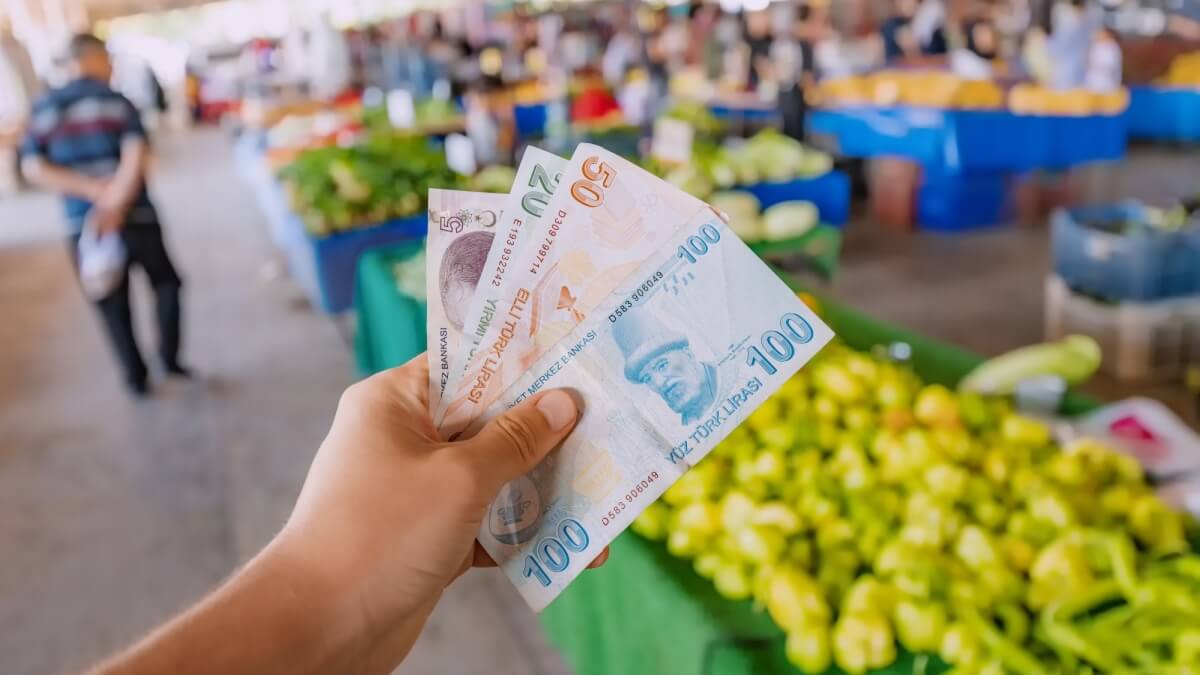Travel to Turkey from the UK: Must-know travel advice
Planning a trip to Turkey from the UK? This guide covers everything from entry requirements and safety tips to managing your money and local laws.

Getting ready for a getaway to Turkey? Whether you’ll be exploring the vibrant cities or relaxing on a Turkish beach, you’re probably thinking about the details of your travel budget as well.
In this guide, we’ll tell you what is the best currency to take to Turkey from the UK. We’ve included information about the accepted payment methods in Turkey and which one you should rely on.
We’ll also show you a handy alternative to cash, the Wise debit card from the money services provider Wise. It’s designed for low-cost spending around the world in 150+ countries, automatically converting your pounds to Turkish lira at the mid-market exchange rate, only adding a small, transparent currency conversion fee. Or it’s free if you already have the foreign currency in your Wise account.
Whenever you travel abroad, it’s best to take the country’s official currency with you. That way, you’ll avoid unnecessary exchange fees and any additional charges. The local currency in Turkey is the Turkish lira and each lira is divided into 100 kuruş.
Some businesses in tourist areas might accept other currencies as well, such as euros, US dollars or pounds sterling. Although that can seem appealing, you should know that they’re most likely including a markup. Even if it’s more convenient for you to pay in pounds when given the chance, we recommend sticking to Turkish lira.
In general, there’s no need to exchange currency before travelling to Turkey, especially if you have a Wise debit card. However, you’ll be able to find plenty of exchange offices and ATMs once you get there. If you wish, you can bring a small amount of Turkish lira just in case you need it for something upon arrival.
Make sure you avoid exchanging currency at the airport unless you absolutely have to. Airports are notorious for having unfavourable exchange rates and high markups. It’s better to visit any bank in Turkey instead.
Wondering how much money you need for a trip to Turkey? The ideal travel budget for you depends on various factors, such as your own spending habits and where exactly in Turkey you’ll be staying. However, consumer prices are approximately 40% lower than in the UK, so you’ll surely be able to make the most out of your money.
On average, a three-course meal for two in Turkey costs around £24, which is approximately ₺970. Eating in cheaper restaurants or street food spots will set you back around £5 or ₺200. A cup of coffee or a beer in a Turkish bar costs £2-£3 on average or ₺100 in the local currency.²
Some other daily expenses you should consider are public transport passes, souvenirs and museum tickets. Based on these average prices in Turkey, you’ll probably be spending at least £50 a day per person, or ₺2,000.²
| 📚 Read more: Best ways to spend money while travelling abroad |
|---|

All commonly accepted means of payment are also used in Turkey. This means you can pay with your credit or debit card, with cash or through different apps. Although old-fashioned cash is still very popular, it’s used less in favour of other methods.
In the past couple of years, credit cards have become the primary way of paying in Turkey and they’re now being used for over 40% of all transactions. This statistic also includes the usage of charge cards.
Debit cards and mobile wallets are used almost equally in Turkey. These two methods account for around 20% of transactions in total.
However, you shouldn’t rely solely on cards and digital payments. Even though it’s easier to tap your card than carry cash, it’s important to at least have some change on you. Also, cash is sometimes the only available payment method in smaller towns and the countryside. It’s almost as popular as card payments, so make sure you have some lira on hand.
If you’re wondering whether you should bring cash or cards to Turkey, the answer is - ideally both. They’re used almost equally and each has its advantages. Also, you never know what could happen, so it’s best to have a plan B.
Using a prepaid travel card or a debit card is a good option if you’re trying to stay on budget. But, cash is accepted everywhere and it’s essential for things like tipping or shopping at local bazaars.
Don’t forget about bargaining, which is a key part of shopping in Turkey. If you happen to run out of lira at some point during your trip, you can always withdraw more at a Turkish ATM. There’s no need to bring large amounts from the UK.
Digital and card payments are very popular in Turkey. Paying with your credit card is certainly much safer than carrying a lot of cash with you. Also, make sure you always choose to pay in the local currency when asked.
Also, keep in mind that some cards, like the Wise debit card, can convert your pounds to lira automatically, with only a small conversion fee, so you don’t have to worry about exchanging currency in advance.
Sources used:
Sources last checked on date: 13-May-2024
*Please see terms of use and product availability for your region or visit Wise fees and pricing for the most up to date pricing and fee information.
This publication is provided for general information purposes and does not constitute legal, tax or other professional advice from Wise Payments Limited or its subsidiaries and its affiliates, and it is not intended as a substitute for obtaining advice from a financial advisor or any other professional.
We make no representations, warranties or guarantees, whether expressed or implied, that the content in the publication is accurate, complete or up to date.

Planning a trip to Turkey from the UK? This guide covers everything from entry requirements and safety tips to managing your money and local laws.

Read our essential guide to ATMs in Turkey (Türkiye), including how to find them, fees, exchange rates, withdrawal limits and more.

Learn how to claim your VAT refund in Turkey and save money on your purchases. Our guide covers the step-by-step process for getting your VAT refund in Türkiye.

How much money can you take to Türkiye from the UK? Read this handy guide for info on the rules for taking cash in and out of Turkey.

Read our complete guide to the Turkey digital nomad visa, covering fees, documents, eligibility requirements and how to apply.

Travelling to Turkey? Read our roundup of the best UK credit cards to use in Turkey, comparing interest rates, fees and more.